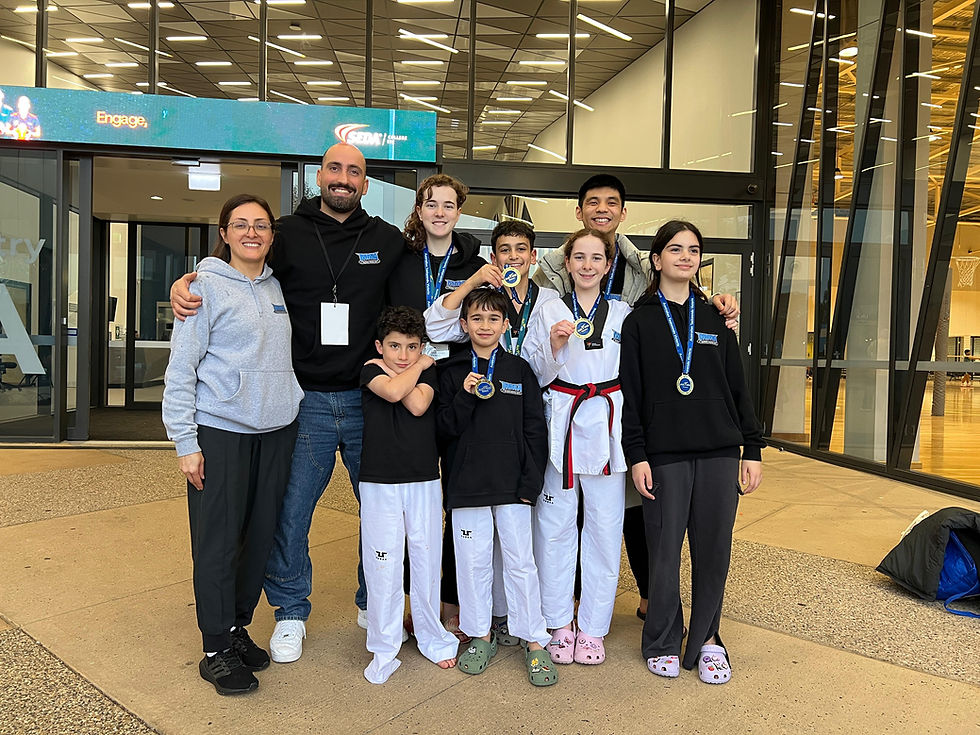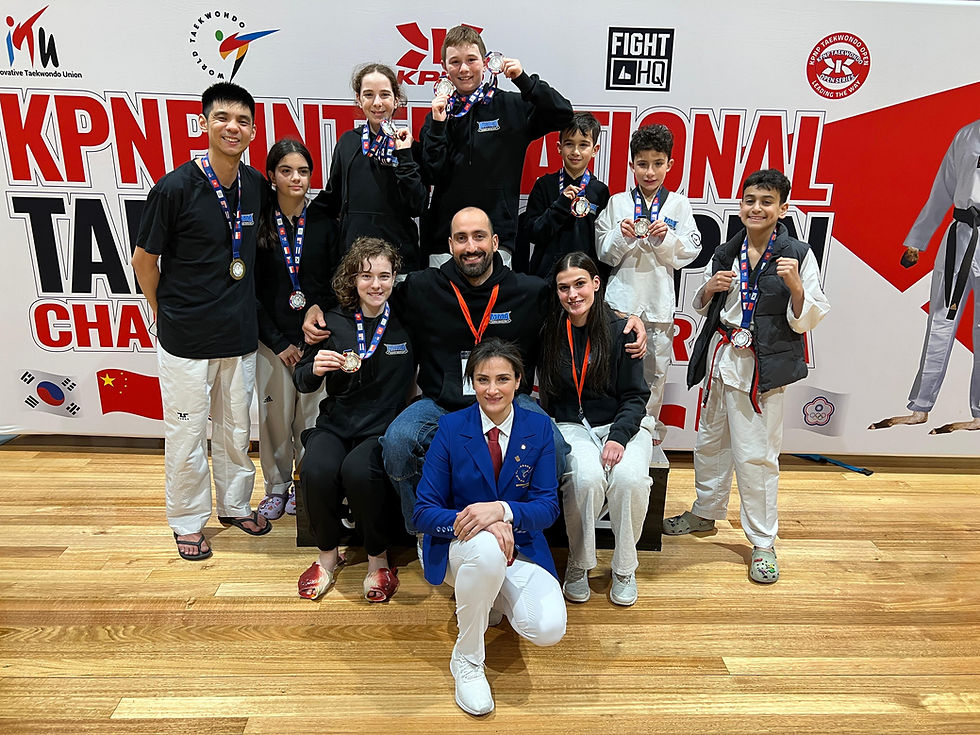Does Taekwondo Help ADHD? Martial Arts ADHD Research Says Yes
- mozhdehmartialarts
- Feb 22, 2025
- 3 min read
Updated: Jul 31, 2025

Attention-deficit/hyperactivity disorder (ADHD) affects millions of children and adults worldwide, making focus, discipline, and impulse control challenging. Navigating through those childhood years can be challenging as we support our kids to build their self confidence and discipline. This article will discuss some martial arts ADHD research to help us answer the question: Does taekwondo help ADHD?
More Than Just Kicks and Punches: The ADHD-Taekwondo Connection

For individuals with ADHD, traditional sports can sometimes feel overwhelming. Too much noise, too many moving parts, and not enough individual progress. That’s where Taekwondo stands out. Its structured environment, clear goals, and emphasis on discipline make it an ideal fit for ADHD brains that thrive on routine and immediate feedback.
But does Taekwondo help ADHD in measurable ways? The martial arts ADHD research says yes.
The Science from Martial Arts ADHD Research
Martial arts ADHD research reveals four key ways that answer our question: Does taekwondo help ADHD?:
1. Sharper Focus Through Repetition
ADHD brains crave stimulation, and Taekwondo provides it through highly structured, repetitive movement sequences. Research published in The Journal of Attention Disorders found that children who participated in martial arts training, including Taekwondo, showed significant improvements in attention span and cognitive flexibility compared to those in non-martial arts activities (1).
2. Better Impulse Control and Self-Regulation
Taekwondo isn't just about physical movement—it’s about mastering self-discipline. A study in Frontiers in Pediatrics found that structured physical activities like Taekwondo help manage hyperactivity by reinforcing controlled movements and delayed gratification (2). This directly translates to fewer outbursts and better decision-making in daily life.
3. Exercise: The Natural ADHD Medication
It’s no secret that exercise boosts dopamine and norepinephrine—two neurotransmitters that are often imbalanced in individuals with ADHD. Research from Harvard Medical School confirms that regular physical activity can be as effective as medication for improving focus and reducing impulsivity (3). The dynamic movements of Taekwondo offer a full-body workout that supports brain health and emotional regulation.
4. Confidence and Social Skills Boost
Many children with ADHD struggle with low self-esteem and social difficulties. Taekwondo offers a structured, supportive community where progress is visible and celebrated. A study in The International Journal of Environmental Research and Public Health found that martial arts training improves self-efficacy and social skills in children with ADHD (4). The belt-ranking system provides clear goals and a sense of achievement, reinforcing positive behaviour and boosting confidence.
So, Does Taekwondo Help ADHD? Absolutely.
With the martial arts ADHD research-backed benefits in focus, impulse control, physical health, and self-confidence, Taekwondo offers more than just a great workout—it provides a holistic approach to managing ADHD.
If you're looking for a supportive, structured martial arts program, Mozhdeh Martial Arts is a fantastic place to start. The team fosters an educated and inclusive environment, driven by the martial arts ADHD research and passion. Whether you’re a parent exploring options for your child or an adult seeking better self-regulation, Taekwondo could be the key to unlocking your full potential.
The next time someone asks, “Does Taekwondo help ADHD?” you’ll have a research-backed answer: Yes, and here’s the science to prove it!
Testimonials
References
Lakes, K. D., & Hoyt, W. T. (2004). Promoting self-regulation through school-based martial arts training. Journal of Attention Disorders, 11(4), 505-512.
Lakes, K. D., & Schuck, S. (2008). The effects of martial arts on self-regulation in children with ADHD. Frontiers in Pediatrics, 6, 1-12. https://doi.org/10.3389/fped.2018.00057
Ratey, J. J., & Hagerman, E. (2008). Spark: The revolutionary new science of exercise and the brain. Little, Brown.
Zivin, G., Hassan, N. R., DePaula, G. F., Monti, D. A., Harlan, C., & Hossain, K. D. (2001). An effective approach to violence prevention: Traditional martial arts in middle school. The International Journal of Environmental Research and Public Health, 10(1), 62-72. https://doi.org/10.3390/ijerph10010062




Comments